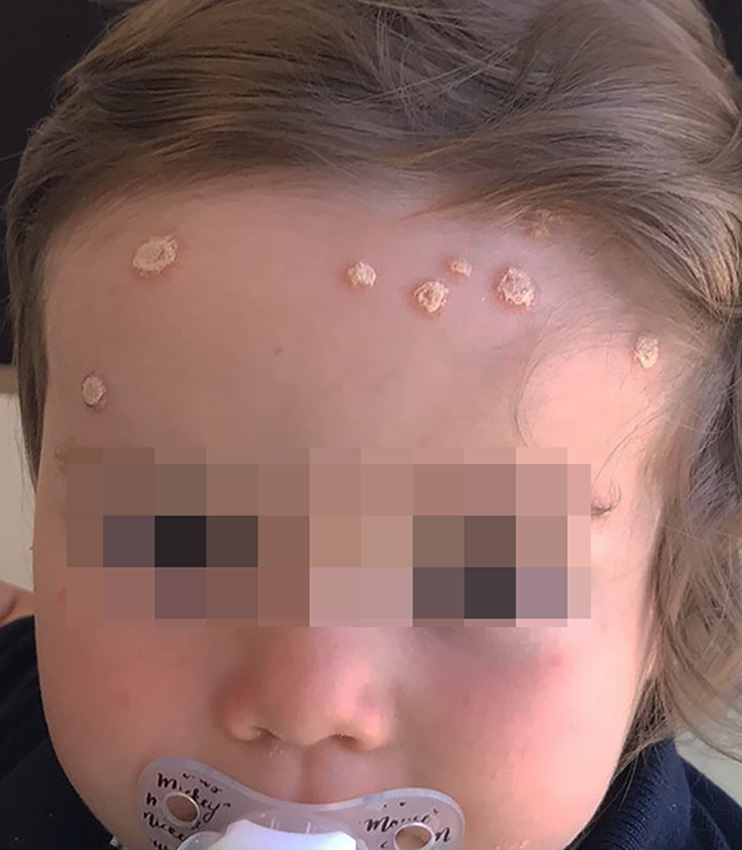Psoriasis in a 12-month-old infant.

Downloads
DOI:
https://doi.org/10.26326/2281-9649.32.3.2393How to Cite
Abstract
Psoriasis is a chronic, multisystem, immune-mediated and inflammatory skin disease (1). It affects approximately 1% of children and one-third of cases begin in childhood with onset more common during adolescence (1, 3, 4). In the current case, psoriasis is diagnosed at 12 months, an unusual age for the onset of this disease. Early onset appears to be related (3, 4) to human leukocyte antigen (HLA) of type Cw6 (PSOR1). Skin involvement is often the reason for seeking medical attention. However, psoriasis is sometimes associated with comorbidities that can have a significant negative impact on quality of life, social relationships and academic performance (4). Physicians should be aware of this and recognize children who can benefit from early screening to improve their health and quality of life. Some of the more common comorbidities in children include psoriatic arthritis, obesity and metabolic syndrome, cardiovascular disease, dyslipidemia, hypertension, insulin resistance, mental health problems, and inflammatory bowel disease (1, 2). Recently the American Academy of Dermatology - National Psoriasis Foundation published guidelines summarizing the strength of the recommendations and the levels of evidence for this screening (...).
